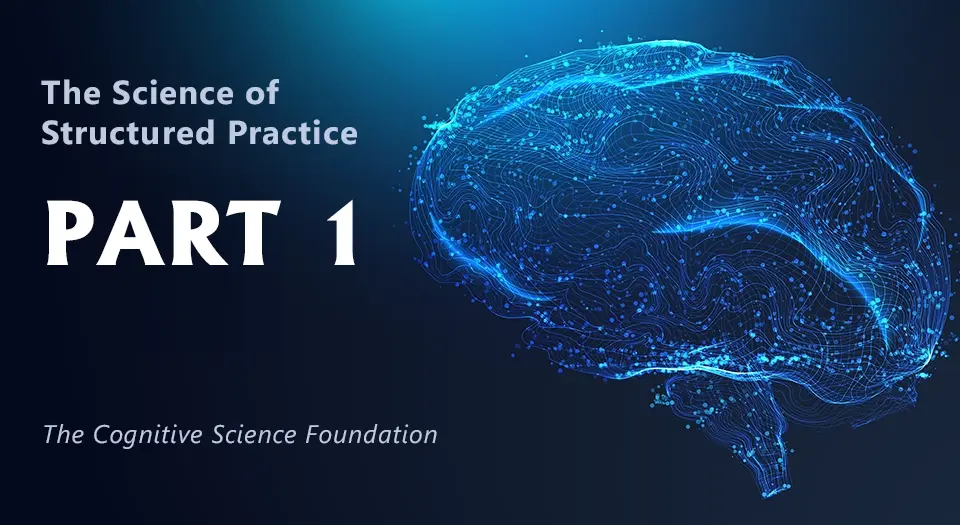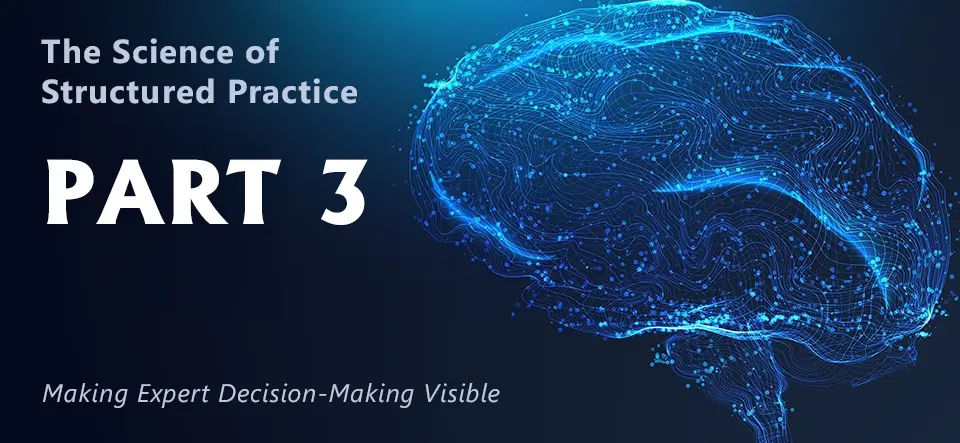
Want to transform performance? Put people in authentic situations. But not just any situations - they must capture real organizational challenges and provide structured paths to better performance. Put a sales manager in a real coaching scenario, a physician in an actual patient case, or a leader in a true team challenge - and watch performance improve dramatically. Why?
Because authentic situations are essential for developing impactful decision-making skills.
Understanding Situational Context
Situated cognition theory reveals something crucial about how people develop expertise: learning cannot be separated from the context in which knowledge will be applied. This isn't just academic theory - it explains why some organizations successfully close performance gaps while others struggle despite significant training investments.
Top performers excel because they've developed expertise in navigating their organization's specific challenges. This isn't generic knowledge - it's deep understanding of actual situations, stakeholders, and decision points that matter to business outcomes.
For example:
- A skilled sales leader adjusts their coaching approach based on each team member's specific challenges and organizational dynamics
- An experienced physician considers the nuances of each patient's situation when determining treatment strategies
| "Top performers make decisions differently in nuanced situations. The key is capturing that expertise in ways others can learn from." |
The Power of Authentic Situations
What makes a practice situation "authentic" varies by need. While some skills require highly realistic physical environments (like maintaining equipment or performing procedures), many performance gaps depend on capturing authentic decision-making situations and the conversations that surround them:
- A sales manager determining how to develop a struggling team member
- A physician deciding on an individualized treatment strategy for a patient
- A leader choosing how to guide a direct report's performance
- An enterprise sales rep planning stakeholder engagement strategy
In each case, the decisions aren't simply right or wrong. They're often a spectrum from inappropriate to suboptimal to optimal - and the right choice depends heavily on understanding the specific context through nuanced conversation.

Practicing in Authentic Situations
Organizations face performance gaps that affect productivity:
|
|
These situations demand attention because:
|
|
Structured Practice - Capturing How Experts Coach at Scale
Think about how great coaches develop skills. They put people in authentic situations drawn from real organizational challenges, engage them in natural conversations about what's happening, and guide their decisions based on proven approaches. Through these conversations, learners see both what great looks like and common missteps - with mentoring that helps them recognize patterns of success. This proven methodology transforms performance, but organizations face a critical challenge: you can't clone your best coaches.
This is where structured practice embedded in interactive simulation technology becomes essential for scaling expertise. By capturing and delivering at scale through immersive learning environments:
|
|
Unlike free-form practice, structured approaches ensure every learner experiences these authentic conversations and receives consistent coaching that reflects genuine organizational context. The mentoring feels real because it captures how experts actually guide others through challenging situations.
Measuring Impact Through Decisions
The power of structured practice in authentic situations shows in the results. When organizations capture how their top performers think and decide, they create measurable paths for others to develop similar expertise. Rather than hoping knowledge transfers to performance, they can track specific decisions and see how teams improve in handling real organizational challenges.
Consider these transformations:
|
|
Looking Ahead: Making Expert Guidance Scale
In Part 3 of this series, we'll explore how expert guidance within structured practice accelerates learning. We'll examine specific techniques that make expert thinking visible and help others recognize patterns of success. Most importantly, we'll show how organizations can scale their best coaching practices to develop expertise systematically across teams.
The goal isn't just practice - it's transforming organizational expertise into structured learning experiences that consistently develop high performers. When authentic situations meet structured practice, organizations can finally bridge the gap between knowledge and performance.
References
- Kolb D. Experiential Learning: Experience as the source of learning and development. Prentice Hall, Upper Saddle River, NJ. 1984.
- McGaghie WC, Draycott TJ, Dunn WF, Lopez CM, Stefanidis D. Evaluating the impact of simulation on translational patient outcomes. Simul Healthc. 2011;6 Suppl:S42-7.
- Theoretical Foundations of Learning Environments. D. Jonassen and S. Land, editors, Routledge, 2012.



